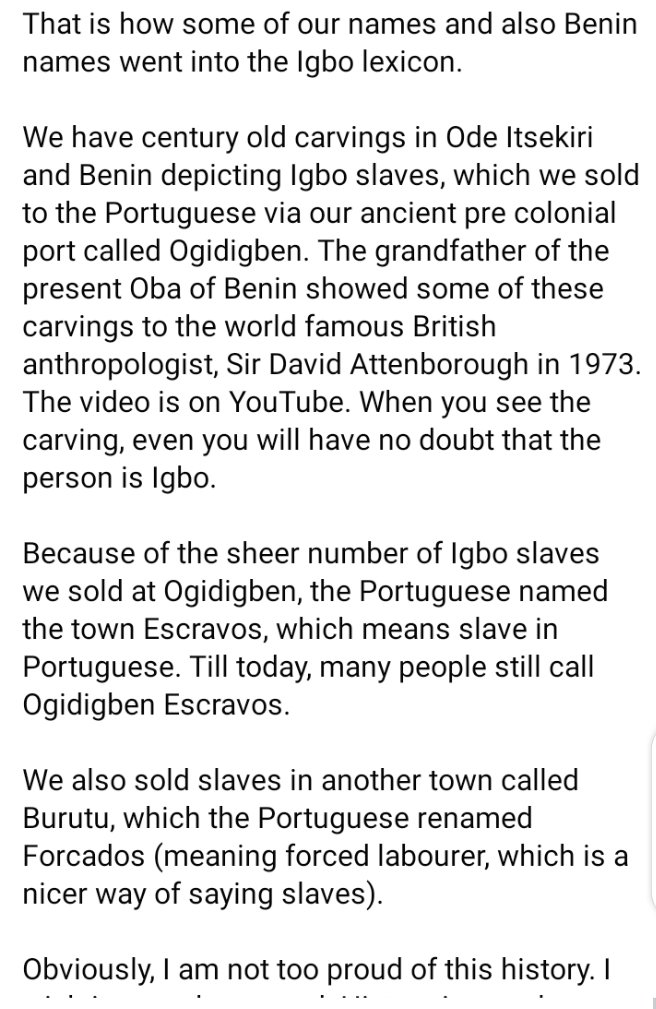
Just a reminder:
CHIDỊNMA OR CHIDỊMMA: WHICH ONE IS SPELT CORRECTLY AND WHY?
Over the years, grammatical anomalies have been committed regarding ways to write some Igbo names or words. On social media, series of "nma" and "mma" challenge have taken place.
CHIDỊNMA OR CHIDỊMMA: WHICH ONE IS SPELT CORRECTLY AND WHY?
Over the years, grammatical anomalies have been committed regarding ways to write some Igbo names or words. On social media, series of "nma" and "mma" challenge have taken place.
Many people opined that their dialect pronounce "nma", others said no, it is "mma". Some said "mma" means mother while "nma" means beauty. They are phonologically unexposed to know the importance of tone marking in Igbo heteronyms.
Others say "mma" is knife while "nma" means beauty.
Let me first initiate the idea that "nma" is anglicised form of mma which does not follow the phonotatic rules of the Igbo language.
In Igbo language, "M" and "N" are consonants. But unique in a way. They are syllabic nasals.
Let me first initiate the idea that "nma" is anglicised form of mma which does not follow the phonotatic rules of the Igbo language.
In Igbo language, "M" and "N" are consonants. But unique in a way. They are syllabic nasals.
In Igbo phonotatic rule, there is no consonant cluster. That is why Nsukka, Onitsha, Owerri are wrong. They are not Igbo. Instead the correct spellings are Nsụka, Ọnịcha and Owere.
But "M" and "N" can come together to form a meaningful word.
But "M" and "N" can come together to form a meaningful word.
This time, the repeated "M" or "N" is no longer a consonant cluster but as one stands for syllabic nasal (myiriụdaume), another one stands for consonant (mgbochiume) The first one can take tone mark but the second one cannot. Eg:
Mma
Mmanụ
Mmadụ
Mmemme
Mmọnwụ
Mmịmị
Mmegbu
Mma
Mmanụ
Mmadụ
Mmemme
Mmọnwụ
Mmịmị
Mmegbu
The first "m" stands for a syllabic nasal. It takes tone mark. But the following "m" stands for consonant, it does not take tone mark.
Coming to "N", the same rule goes. Eg:
Nne
Nnenna
Nnedi
Nnamdị
Nnọọ
Nna.
The first "n" is not functioning as a consonant but syllabic nasal
Coming to "N", the same rule goes. Eg:
Nne
Nnenna
Nnedi
Nnamdị
Nnọọ
Nna.
The first "n" is not functioning as a consonant but syllabic nasal
It takes tone mark; while the following "n" is a consonant. It does not take tone mark.
THE GRAMMATICAL RULES OF IGBO
Igbo phonotactic rule states that:
1. "M" cannot meet with "N" to form a word. Like "Mna" "Mnadụ" "Mnegbu".
2. "N" cannot meet with "M" to form a word.
THE GRAMMATICAL RULES OF IGBO
Igbo phonotactic rule states that:
1. "M" cannot meet with "N" to form a word. Like "Mna" "Mnadụ" "Mnegbu".
2. "N" cannot meet with "M" to form a word.
For instance:
Nma
Nmadụ
Nmenme
Nmegbu
Nmanya, etc.
What we have are these:
* "M" goes with "m" eg:
Mmá =beauty
Mmà= knife
Mmanya
Mmanụ
Chidịmma
* "N" goes with "N" eg:
Nneka (not Nmeka)
Nnanna
Nnadi
Nnọrọ, etc.
Nma
Nmadụ
Nmenme
Nmegbu
Nmanya, etc.
What we have are these:
* "M" goes with "m" eg:
Mmá =beauty
Mmà= knife
Mmanya
Mmanụ
Chidịmma
* "N" goes with "N" eg:
Nneka (not Nmeka)
Nnanna
Nnadi
Nnọrọ, etc.
Another point that disproves "Nma" is this. The place of articulation of "M" and the place of articulation of "N" is not the same.
While "M" is a bilabial speech sound (the upper and lower lips emerge together to produce it) then "N" is produced
While "M" is a bilabial speech sound (the upper and lower lips emerge together to produce it) then "N" is produced
when the tongue rise up to the hard palate and clenched with the upper teeth. Though both are nasalised voice sounds, that is why they are called syllabic nasal only when they function as vowels as enumerated above.
What we are discussing here is Igbo izugbe and rules of writing Igbo. Those of you claiming that Chidịmma is Chidịnma, you are failing the Igbo grammatical rules of word formation. Those of you writing mmegbu as nmegbu, you are failing the grammatical rules of the Igbo language
The aforementioned points are the reason why "Nma" is wrong. it does not go at all. Some people say: " that is what we have been pronouncing since". They can even be telling you that "n" came first before "m".
Yes! Ihe ọjọọ gbaa afọ ọ bụrụ omenala. When an evil thing persists, it turns to tradition. That you have been pronouncing this for long does not make it right.
And some people asked: "who made the rules? Are they not Igbo like me?"
And some people asked: "who made the rules? Are they not Igbo like me?"
These same people are hypocritically hunting for new English grammar books to learn new grammar and how to speak and write well. They never questioned those who made the English grammatical rules they obey.
The truth is, no one made any linguistic rule.
The truth is, no one made any linguistic rule.
Grammatical rules can be proven. From its nature, we see the rules naturally made before anyone say them out or put them down. That is to to say that grammatical rules are formed following the nature of the language.
© Maazị Ogbonnaya.
Just for a reminder.
© Maazị Ogbonnaya.
Just for a reminder.
• • •
Missing some Tweet in this thread? You can try to
force a refresh





